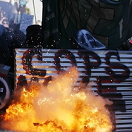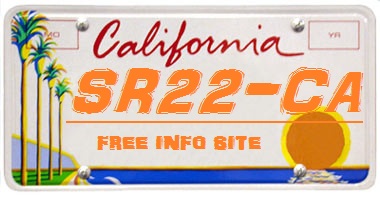SAN FRANCISCO — The sponsors of California’s gay marriage ban renewed their effort Thursday to disqualify a federal judge because of his same-sex relationship, but they met a skeptical audience in an appeals court panel. It’s the first time an American jurist’s sexual orientation has been cited as grounds for overturning a court decision. Lawyers for a coalition of religious conservative groups told a three-judge panel of the 9th U.S. Circuit Court of Appeals that Chief U.S. District Judge Vaughn Walker should have revealed he had a long-term male partner before he presided over a trial on the measure’s constitutionality. He also should have stated whether he had any interest in getting married, the lawyers said. Because he did not, Walker’s impartiality stands in doubt and the decision he ultimately made to strike down Proposition 8 as a violation of Californians’ civil rights must be reversed, said Charles Cooper, an attorney for the ban’s backers. “In May 2009, when Judge Walker read the allegations of the complaint, he knew something the litigants and the public did not know: He knew that he, too, like the plaintiffs, was a gay resident of California who was involved in a long-term, serious relationship with an individual of the same sex,” Cooper said. “The litigants did not have any knowledge of these facts, and it appears that Judge Walker made the deliberate decision not to disclose these facts.” Judge R. Randy Smith, who represents Idaho on the 9th Circuit, interrupted to forcefully ask why a gay judge would be any more obligated to divulge his relationship status and views on matrimony than would a married straight judge who opposes same-sex marriage. “So a married judge could never hear a divorce?” Smith asked. “Your honor, I don’t see the difficulty with a married judge hearing a divorce action,” Cooper answered. Smith replied: “Would he have to disclose, `Oh, I’ve been married, and we’ve been married for 24 years and we have a relationship that’s kind of difficult’? That’s what you are arguing here?” Cooper said the hypothetical situation Smith described was different because if Walker, who is now retired, had “desired to marry his partner, he would have stood in exactly the same shoes as the plaintiffs in this case.” David Boies, a lawyer representing the two same-sex couples who successfully sued to strike down Proposition 8 in Walker’s court, attacked Cooper’s reasoning, arguing that judicial ethics rules never have required judges to bow out of civil rights cases because they are members of the minority group whose constitutional rights are at issue. Cooper’s “perverse logic is that only judges, gay or straight, who have no interest in marrying and the institution of marriage would be the only ones who could hear this case,” Boies said. Judge Stephen Reinhardt, of California, asked if the presumption that Walker could be unbiased in a same-sex marriage case would be valid even if the judge had disclosed at the start of the trial that he planned to get married once the case were over and he legally could. “Mr. Cooper’s point is the absence of that information raises an obligation on the part of the judge to disclose whether he wants to get married or not,” Reinhardt said. “He says it’s relevant because it allows the public to determine whether there is a reason for recusal, and that applies not only to `Yes, I do intend to get married,’ but, `No, I do not intend to get married.” Boies answered that Walker had no obligation to reveal his personal thoughts on marriage either way, but that expecting him to have spoken up to disavow any interest in marrying his partner was “an intolerable double standard” for gay and lesbian judges. “A heterosexual judge may feel passionately about preserving the institution of marriage. Does that judge have an obligation to volunteer, to come forward, to tell the parties what his views of marriage are and his views of the institution of marriage?” Boies asked. The appeals court did not immediately rule on the matter. In June, Walker’s successor, Chief Judge James Ware, rejected the same arguments from the ban’s backers that Walker’s ruling should be overturned because he might personally benefit from declaring Proposition 8 unconstitutional. The hearing Thursday was over an appeal of Ware’s decision. The 9th Circuit panel also heard arguments on whether it should unseal video recordings Walker made of the January 2010 trial. After the U.S. Supreme Court barred the trial’s video broadcast beyond Walker’s courtroom, the judge had his staff record the proceedings but said they would only be viewed by him in his chambers to refresh his memory while he was preparing his opinion. Lawyers for the two couples and a coalition of media organizations that includes The Associated Press are asking the appeals court to make the recordings public. The 9th Circuit has said it needed to hear arguments on both the significance of Walker’s relationship and the public release of the trial videos before it can address the more substantive issue of whether Walker correctly struck down Proposition 8 on federal constitutional grounds. The appeals court panel heard arguments about that in January but does not face a deadline for making a decision. Continued here: Yet Another Day In Court For Prop 8
Posts Tagged ‘ opinion ’
Occupy Oakland Riot 327 Arrests

The Occupy Oakland day-long protest turned violent with riot police and protesters injured as hundreds of angry demonstrators were arrested in a cloud of tear gas. “Occupy Oakland has got to stop using Oakland as its playground, and people in the community and people in the Occupy movement have to stop making excuses for this behavior,” Oakland Mayor Jean Quan declared after protesters broke into Oakland City Hall, destroyed exhibits and set an American flag on fire. Riot police moved in, firing grenades, tear gas and non-lethal projectiles at the violent mass of demonstrators who threw bottles, metal pipes, rocks, bricks, explosive devices and burning flares at officers of the Oakland Police Department . Oakland residents could hear hundreds of rioting protesters screaming, “Pigs! Pigs! Pigs!” while vandalizing buildings and cars well into the night as families attempted to get some sleep in their homes. Mayor Quan has reached the end of her tolerance regarding violent Occupy Oakland demonstrations. City Councilman Ignacio De La Fuente issued a strong statement, declaring, “It’s an escalation that, in my opinion, basically amounts to domestic terrorism.” The City of Oakland is being assisted by a coalition of law enforcement agencies from across the San Francisco Bay Area in its effort to stop the Occupy Oakland violence. OCCUPY OAKLAND RIOT ARRESTS Originally posted here: Occupy Oakland Riot 327 Arrests



